Imagine juggling your toddler’s playdate, your daughter’s dental check-up, and your aging mother’s medication schedule—all in the same day. The sheer thought is overwhelming, isn’t it? For many caregivers, this scenario isn’t hypothetical; it’s their everyday reality.
Managing the healthcare needs of both young children and elderly parents can feel like navigating a labyrinth without a map. The good news is that technology is stepping up to bridge this care gap, offering innovative solutions that simplify family healthcare management like never before.
The Growing Need for Digital Health Management
According to a study by the AARP, nearly 90% of seniors prefer to age in place, staying in their own homes as they grow older (AARP, 2018). Simultaneously, parents are finding it increasingly challenging to keep up with their children’s health needs—from immunizations to managing chronic conditions like asthma.
This intersection of responsibilities places immense pressure on caregivers, leading to the rise of the “sandwich generation”—those caring for their children and aging parents simultaneously. The modern family faces complex healthcare challenges that previous generations could hardly imagine. However, with the advent of digital health tools, there’s hope for a more organized and less stressful approach to family care.
Breaking Down Modern Healthcare Challenges
Time Management and Care Coordination
Balancing multiple medical appointments, medication schedules, and health updates can feel like a full-time job. Caregivers often juggle pediatrician visits while coordinating specialist appointments for elderly parents. The logistical complexities can lead to:
- Missed appointments
- Medication errors
- Overlooked symptoms
The Emotional Toll on Caregivers
Beyond logistical hurdles, caregivers often experience emotional stress. Balancing work, family, and caregiving responsibilities can lead to burnout. According to the Family Caregiver Alliance, caregivers are at higher risk for depression and chronic health conditions themselves (Family Caregiver Alliance, 2019).
Financial Strain
Managing healthcare can also be financially taxing. Between medical bills, medications, and potential loss of income due to caregiving duties, families may struggle to make ends meet. Technology can help by offering cost-effective solutions, such as telehealth appointments that reduce travel expenses.
Remote Health Monitoring: A Game-Changer for Families
Enter remote health monitoring. This technology allows caregivers to keep tabs on their loved ones’ health without being physically present at all times. Digital platforms enable you to:
- Monitor vital signs remotely
- Track medication adherence
- Record symptoms and health changes
- Share data securely with healthcare providers
- Receive real-time alerts for concerning changes
By leveraging these tools, caregivers can ensure that no detail slips through the cracks, providing peace of mind for the entire family.
The Power of Preventive Care Through Technology
Early detection of health issues can make a significant difference in outcomes. Digital health monitoring systems help families:
- Identify patterns in health data
- Spot potential concerns before they become emergencies
- Maintain better communication with healthcare providers
- Make informed decisions about care
For example, tracking your child’s asthma symptoms can help prevent severe attacks, while monitoring an elderly parent’s heart rate could alert you to potential cardiac issues before they escalate.
Smart Solutions for Modern Families
Integrated Health Tracking
Today’s digital health platforms offer comprehensive solutions for tracking multiple family members’ health data. Innovative solutions like advoMedix consolidate health information for both children and elderly family members into one secure location. This integration simplifies the caregiver’s role, making it easier to manage appointments, medications, and health records.
Medication Management Made Simple
Medication errors are a common problem, affecting thousands of families annually. Smart medication management systems assist by:
- Providing automated reminders
- Tracking medication inventory
- Alerting caregivers about potential drug interactions
- Maintaining detailed medication histories
For instance, if your mother takes multiple medications, a digital system can alert you if a new prescription might interact negatively with her current regimen.
Real-Time Health Monitoring
Wearable devices and health sensors offer unprecedented insight into family members’ well-being. These tools can:
- Track heart rate and blood pressure
- Monitor sleep patterns
- Measure activity levels
- Detect falls or unusual movements
- Alert caregivers to potential emergencies
Imagine receiving an instant alert if your father falls at home while you’re at work, allowing you to take immediate action.
Telemedicine: Access to Care Anytime
Telemedicine allows families to consult with healthcare providers remotely. Benefits include:
- Reduced travel time and costs
- Increased access to specialists
- Flexible scheduling
- Immediate medical advice
For a working parent, scheduling a virtual visit during a lunch break can save time and prevent missed work.
Health Apps for Children
There are numerous apps designed specifically for children’s health. These apps can help parents:
- Track developmental milestones
- Monitor immunization schedules
- Manage chronic conditions like diabetes or asthma
- Educate children about healthy habits
For example, an app that gamifies tooth brushing can encourage good dental hygiene in young children.
Empowering Caregivers Through Technology
Knowledge is Power
Access to accurate health information enables caregivers to make better decisions. Digital platforms provide:
- Educational resources
- Symptom checkers
- Treatment guides
- Emergency protocols
- Healthcare provider directories
These resources empower you to respond effectively to health concerns, whether it’s understanding a new diagnosis or knowing when to seek emergency care.
Streamlined Communication
Effective healthcare management requires clear communication between family members and healthcare providers. Digital solutions facilitate:
- Secure messaging with healthcare teams
- Family care coordination
- Emergency contact management
- Appointment scheduling and reminders
By centralizing communication, caregivers can ensure everyone is on the same page, reducing the risk of miscommunication.
Community Support Networks
Digital platforms can connect caregivers with support networks. Features may include:
- Online forums for sharing experiences
- Access to professional counseling
- Educational webinars and workshops
- Peer support groups
Feeling connected to others facing similar challenges can alleviate feelings of isolation.
Making Technology Work for Your Family
Getting Started with Digital Health Tools
Implementing new technology can be daunting, but it doesn’t have to be.
Assess Your Needs
- Identify key health concerns
- List daily healthcare tasks
- Determine which family members need monitoring
- Consider your technical comfort level
Choose the Right Tools
- Look for user-friendly interfaces
- Ensure data security
- Check compatibility with existing devices
- Verify healthcare provider integration options
Implement Gradually
- Start with basic features
- Add functionality as needed
- Train family members systematically
- Establish regular usage routines
Overcoming Common Challenges
Technology Adoption
Adopting new technology can be a hurdle, especially for seniors. Success strategies include:
- Starting with simple features
- Providing clear instructions
- Offering ongoing support
- Celebrating small victories
For example, teaching your mother to use a medication reminder app can start with setting up the first reminder together.
Privacy and Security
Data security is a top concern for families using digital health tools. Look for platforms that offer:
- End-to-end encryption
- Secure data storage
- Controlled access settings
- Regular security updates
Ensure that all family members understand the importance of keeping login information confidential.
Bridging the Digital Divide
Not all families have equal access to technology. Strategies to overcome this include:
- Utilizing low-cost or free apps
- Accessing community resources like public libraries
- Seeking programs that provide devices to low-income families
Ensuring Accessibility
For seniors or individuals with disabilities, technology must be accessible. Look for solutions that offer:
- Large fonts and high-contrast displays
- Voice commands
- Simple navigation
- Multilingual support
The Future of Family Healthcare Management
Artificial Intelligence and Predictive Care
Emerging AI technologies are revolutionizing preventive care by:
- Analyzing health patterns
- Predicting potential health issues
- Recommending preventive measures
- Personalizing care recommendations
For instance, an AI-powered app might analyze your child’s sleep patterns and suggest adjustments to improve their sleep quality.
Integration and Interoperability
The future lies in seamless integration. Leading companies like Digital Elevate Partners are working to create unified platforms that connect:
- Electronic health records
- Wearable devices
- Home monitoring systems
- Healthcare provider systems
This integration means less manual data entry and more accurate, up-to-date information at your fingertips.
The Role of Policy and Regulation
Government policies are increasingly supporting digital health initiatives. For example, the expansion of telehealth services under Medicare has made remote care more accessible to seniors.
Global Innovations
Globally, innovative solutions are emerging, such as mobile clinics equipped with digital tools in rural areas, expanding access to care where traditional healthcare facilities are scarce.
The Impact of Digital Health Management
Improved Health Outcomes
Research indicates that families using digital health management tools experience:
- Better medication adherence
- Fewer emergency room visits
- Improved communication with healthcare providers
- Enhanced preventive care
A study published in the Journal of Medical Internet Research found that remote monitoring reduced hospital readmissions by 25% (JMIR, 2016).
Quality of Life Benefits
Digital health solutions contribute to:
- Reduced caregiver stress
- Better work-life balance
- Improved family communication
- Enhanced peace of mind
Knowing that you’re effectively managing your family’s health allows you to focus on enjoying time together.
Case Study: The Smith Family
Consider the Smith family, who began using a digital health platform to manage their son’s asthma and their grandmother’s diabetes. By tracking symptoms and medications, they noticed patterns that helped adjust treatment plans. Over six months, emergency visits decreased by 40%, and both patients reported feeling better overall.
Looking Ahead
As technology evolves, the future of family healthcare management looks promising. Innovations in artificial intelligence, sensor technology, and data analytics will further enhance our ability to care for loved ones.
Key Trends to Watch
- Integrated care platforms
- Advanced predictive analytics
- Enhanced remote monitoring
- Improved user interfaces
- Expanded provider networks
Managing the health needs of a family is no small feat. The juggling act of appointments, medications, and daily care can be overwhelming. But technology offers a lifeline, transforming the way we approach family healthcare.
Imagine a world where you receive an alert if your mother’s blood pressure spikes, or where your child’s asthma symptoms are tracked and analyzed to prevent attacks. This is not a distant future; it’s the reality that digital health tools bring to your doorstep.
By integrating technology into your caregiving routine, you empower yourself with knowledge, streamline communication, and enhance the quality of care you provide. The journey may seem daunting, but with careful planning and gradual implementation, the benefits are well within reach.
Every family’s journey is unique. What works for one may not work for another. The key is to find solutions that address your specific challenges and fit seamlessly into your life. With companies like Digital Elevate Partners leading the way in creating integrated platforms like advoMedix, the tools you need are more accessible than ever.
So, take the first step. Assess your needs, explore your options, and embrace the technology that can transform your caregiving experience. Your loved ones—and your peace of mind—are worth it.
References
- AARP (2018). Aging in Place: A State Survey of Livability Policies and Practices. AARP Public Policy Institute.
- Family Caregiver Alliance (2019). Caregiver Health. Family Caregiver Alliance.
- Journal of Medical Internet Research (2016). Impact of Remote Patient Monitoring on Clinical Outcomes: An Updated Meta-analysis of Randomized Controlled Trials.




